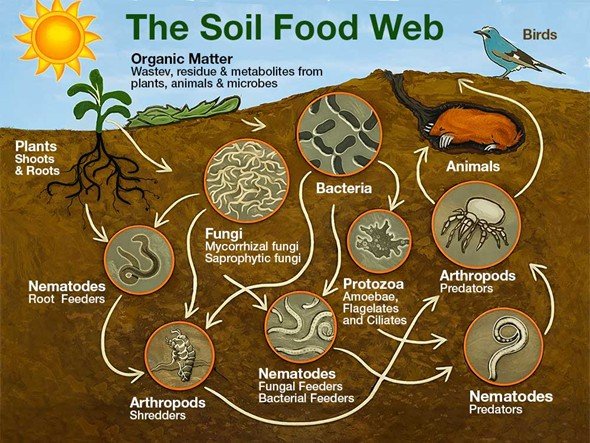
The Soil Food Web shows how soil life turns organic matter into plant nutrition. This is a natural and essential process that releases nutrients, builds soil structure, and supports healthier plants. Your garden soil is a kitchen, recycling center and immune system all in one.
Transformational Gardening is an innovative method used by Deep Roots Project to grow food in organic kitchen gardens with limited space and raised beds. We provide our gardeners with the best products for success – like cedar raised beds, microbe-rich compost and microbe-rich worm castings. Check our many tips and details in our blog posts from the links scattered throughout this post.
Welcome to the Deep Roots Project's full season guide for climate zones 5b and 6a. We go step-by-step through our innovative and easy to learn organic gardening method from early spring preparation through fall harvest.
At Deep Roots, every raised garden bed we build is made from Eastern cedar (often called Eastern Red Cedar). We chose it because it performs beautifully outdoors and it can be a responsible wood choice when it’s harvested and used thoughtfully.
The idea is simple: move healthy peppers into pots before hard frost, keep them alive with minimal effort through winter, and set them back outside in spring for a head start.
In zones 5b and 6a (including the Chicago area), our first frost is usually mid-October. Plant seeds and seedlings in July and August. Some fast growing, fast maturing, cold-hardy vegetables seedlings can be planted as late as early September—the ones that thrive in cooler days and can even sweeten after a light frost.
Using fish emulsion in a food garden is an excellent way to support the health of soil microorganisms and crops. It provides essential nutrients, beneficial microorganisms, and a balanced pH, all while being a natural and sustainable fertilizer option. By incorporating fish emulsion into your gardening routine, you can help to create a healthy and thriving ecosystem in your garden.
Did you know that many ingredients still found in U.S. grocery stores are banned in other countries due to health risks? Look at this list of dangerous ingredients and additives!
Here are 8 delicious vegan recipes for soups, stews, and dips that make excellent use of an abundant lettuce and spinach harvest, and also freeze well.
If you’re looking for a leafy green that thrives when the summer sun is blazing and most other greens have called it quits, Red Malabar Spinach is your new garden best friend. Free seeds are available from us in May and June 2025. Contact the Deep Roots support team at 708-655-6299 or support[at]deep-roots-project.org.
Raised bed soil should touch the native soil below. If you're installing a raised bed on gravel, place the gravel around the bed, not directly under the bed. Also, using landscape fabric under raised beds creates more risks and hassles than benefits.
Tomatoes are the crown jewel of backyard gardens. No vegetable gets planted with more anticipation or more heartbreak when things go wrong. If you’ve struggled to get a good tomato harvest—or you’re growing them for the first time—this guide is here to help you avoid five common mistakes and grow juicy, healthy tomatoes the Deep Roots way.











